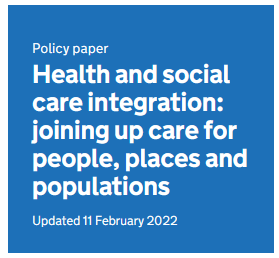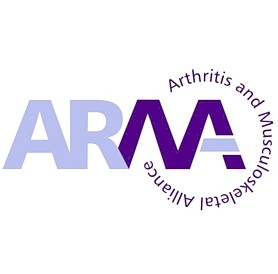 On 11 February a policy paper, Health and social care integration: joining up care for people, places and populations, was published. BestMSK Health with its focus on cross-system, whole-pathway working including prevention seems to me to embody everything the White paper is talking about. I was pleased to see that it includes a commitment to improve pathways for MSK, but there is so much more to integration and MSK health than that. Here’s how I see the principles of the integration White paper playing out in MSK.
On 11 February a policy paper, Health and social care integration: joining up care for people, places and populations, was published. BestMSK Health with its focus on cross-system, whole-pathway working including prevention seems to me to embody everything the White paper is talking about. I was pleased to see that it includes a commitment to improve pathways for MSK, but there is so much more to integration and MSK health than that. Here’s how I see the principles of the integration White paper playing out in MSK.
Shared outcomes
The paper talks about shared outcomes and incentive for organisations to meet outcomes not directly related to their own organisation. This should go without saying – outcomes should relate to patient and population health. The purpose of an orthopaedic department is not to deliver efficient hip and knee surgery, but to promote people’s mobility. This requires not just excellent surgery but also excellent support in primary and community care for pre-hab and rehab. The ability to lead a full and active life is the outcome we are aiming for. Take this one stage further and measure MSK health at a population level to drive a better focus on prevention – something the paper also states must be a priority.
 The paper recognises that outcomes are harder to measure and take longer to deliver than outputs. Understanding this is crucial. Transforming MSK services so that they are integrated and person centred is like turning a tanker. It will take several years of concerted effort to move things into the position we want. Sometimes it seems as though just as the tanker is about to move, the approach is changed and we start all over again.
The paper recognises that outcomes are harder to measure and take longer to deliver than outputs. Understanding this is crucial. Transforming MSK services so that they are integrated and person centred is like turning a tanker. It will take several years of concerted effort to move things into the position we want. Sometimes it seems as though just as the tanker is about to move, the approach is changed and we start all over again.
Leadership
The paper rightly recognises the importance of leadership. Excellent local MSK services is, of course, a local leadership challenge, but to support that leadership, a national focus will be required. For many years, MSK, the largest cause of years lived with disability in the UK, has been forgotten, eclipsed by the big national programmes. To continue our progress towards excellent MSK services and better MSK health, we now need a local leadership with the authority to drive the necessary changes.
 My fear is that the White paper will be implemented without sufficient priority being given to MSK. Some case studies are included in the paper to illustrate the difference an integrated approach could make to individuals. One of them, Bunmi, has osteoarthritis as well as COPD and dementia. The paper outlines support that enables Bunmi to remain in her own home, including digital support and care workers. But there is nothing about addressing her arthritis, or support for her mobility. Bunmi doesn’t just need to remain in her own home and go to church once a week. She needs to get out and keep moving. Indeed, an early focus on this could have benefited her other conditions too. My fear for the implementation of the White Paper is that the Bunmi’s of this world will continue to have their joined up multi-disciplinary health and social care team focus on their needs related to COPD and dementia, but not address their need to remain physically active or manage their arthritis. The solution: A continued focus at national and local level on the MSK health of every citizen. This is what ARMA, and our member organisations, will be working towards.
My fear is that the White paper will be implemented without sufficient priority being given to MSK. Some case studies are included in the paper to illustrate the difference an integrated approach could make to individuals. One of them, Bunmi, has osteoarthritis as well as COPD and dementia. The paper outlines support that enables Bunmi to remain in her own home, including digital support and care workers. But there is nothing about addressing her arthritis, or support for her mobility. Bunmi doesn’t just need to remain in her own home and go to church once a week. She needs to get out and keep moving. Indeed, an early focus on this could have benefited her other conditions too. My fear for the implementation of the White Paper is that the Bunmi’s of this world will continue to have their joined up multi-disciplinary health and social care team focus on their needs related to COPD and dementia, but not address their need to remain physically active or manage their arthritis. The solution: A continued focus at national and local level on the MSK health of every citizen. This is what ARMA, and our member organisations, will be working towards.

